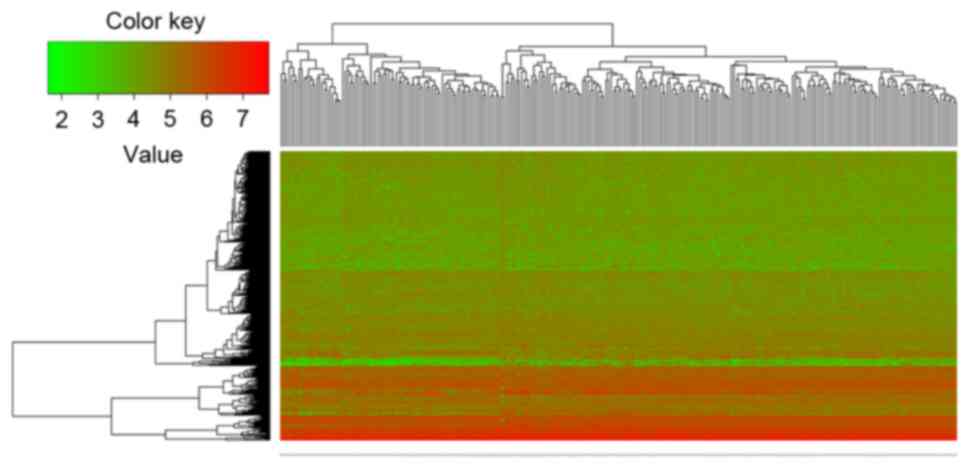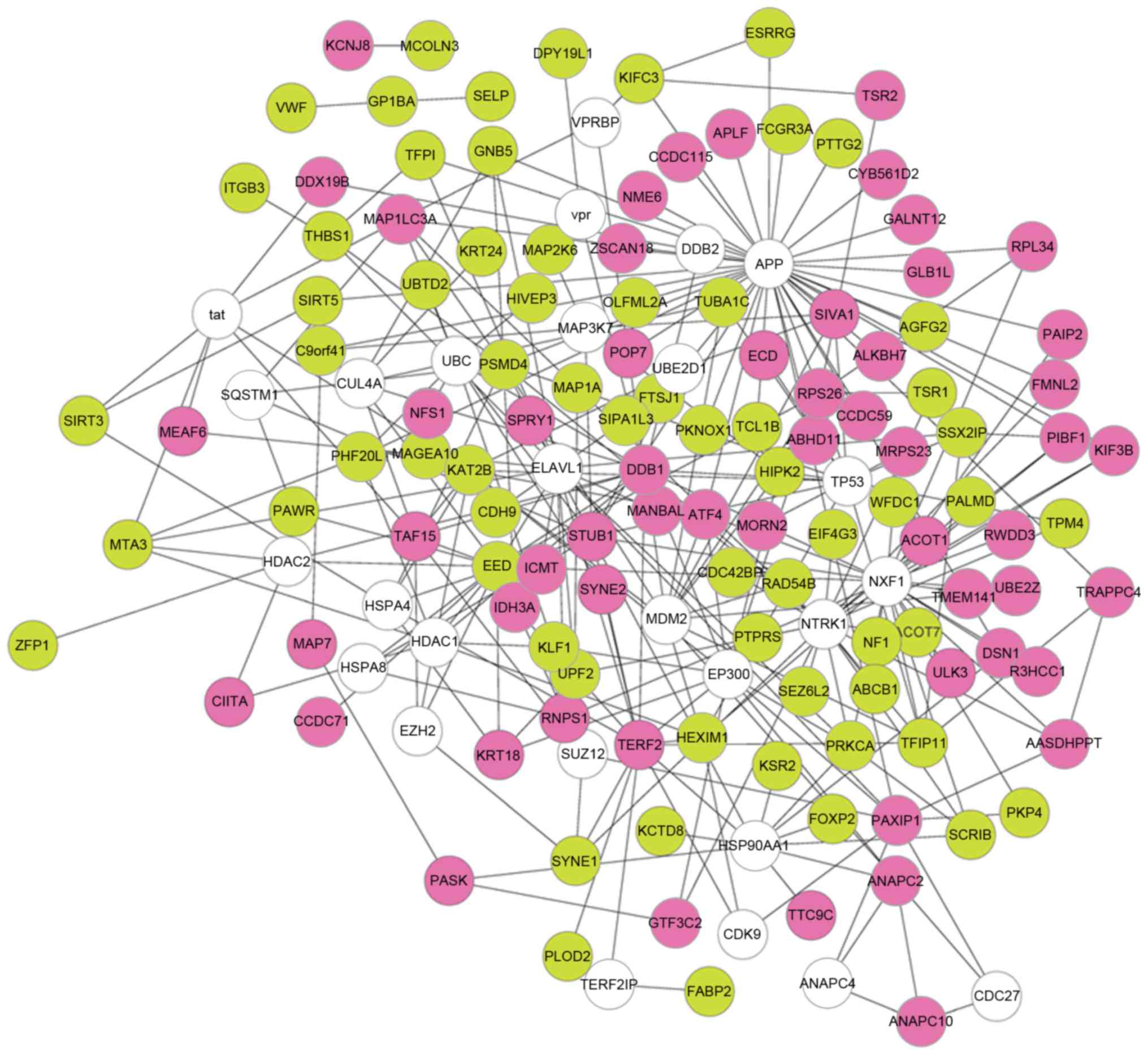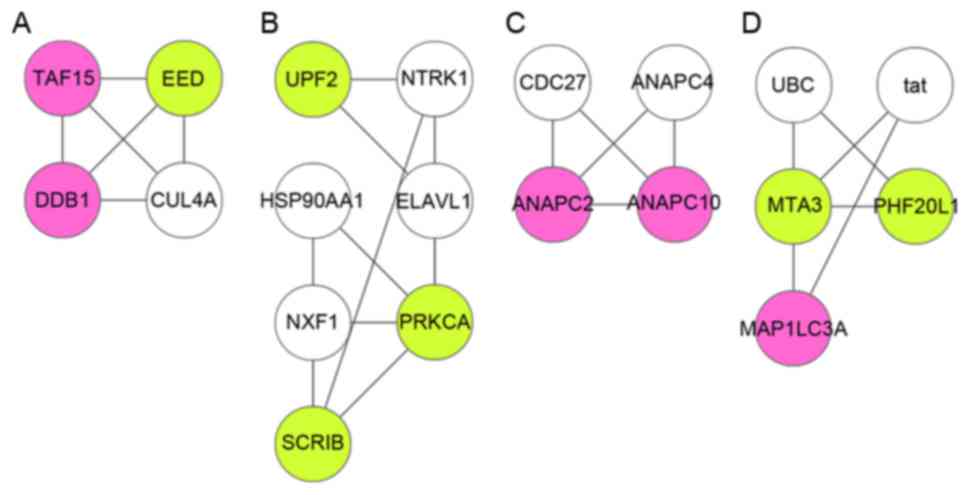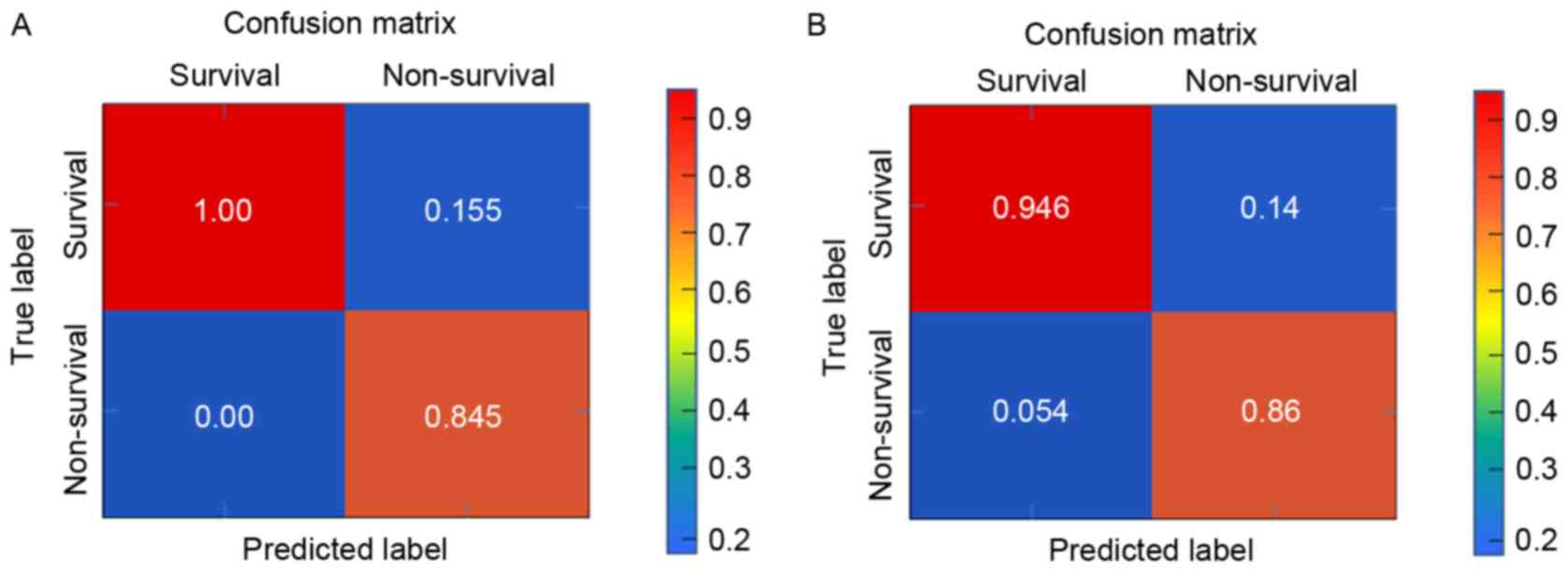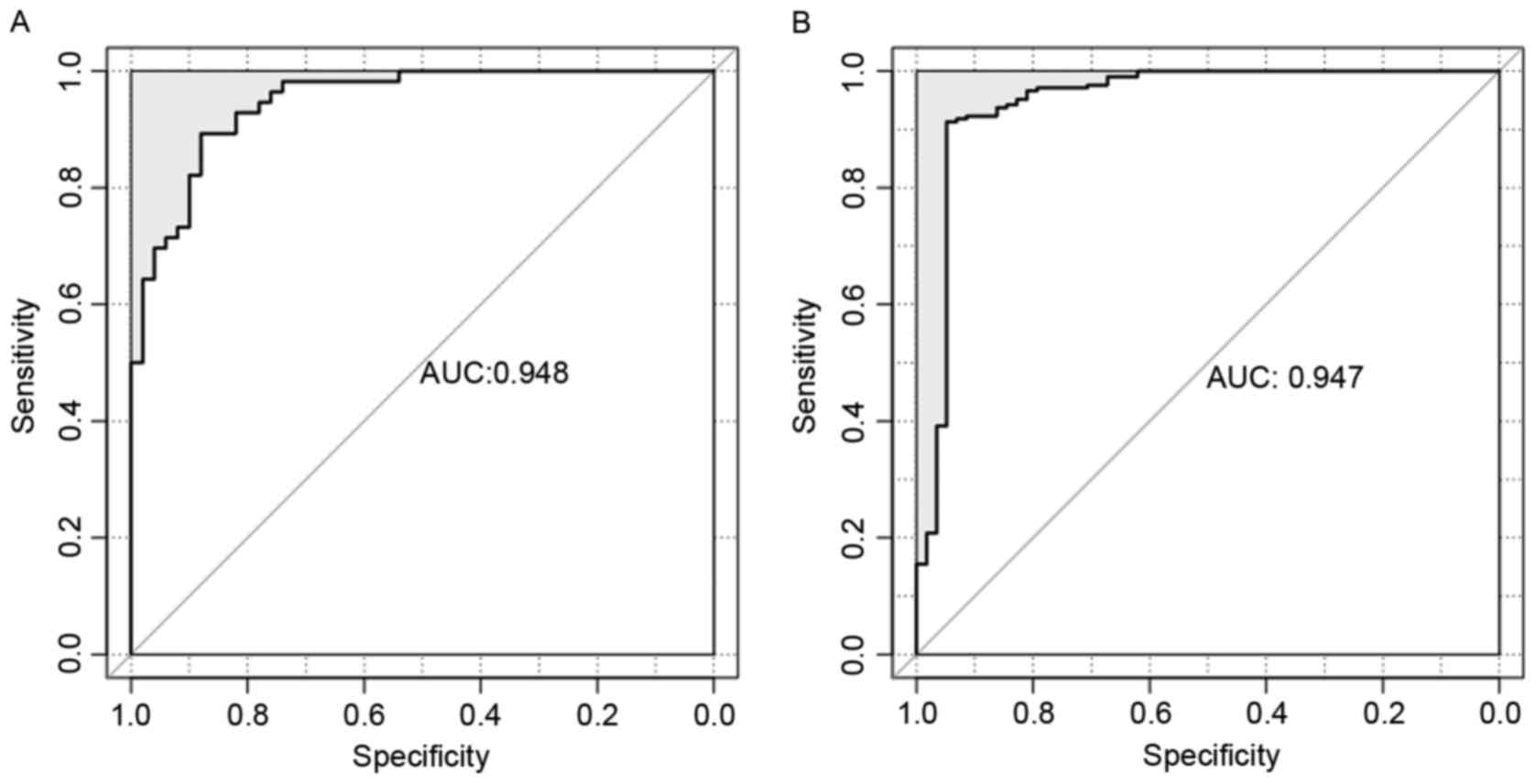|
1
|
Singer M, Deutschman CS, Seymour CW,
Shankar-Hari M, Annane D, Bauer M, Bellomo R, Bernard GR, Chiche
JD, Coopersmith CM, et al: The third international consensus
definitions for sepsis and septic shock (sepsis-3). JAMA.
315:801–810. 2016. View Article : Google Scholar : PubMed/NCBI
|
|
2
|
Hodgin KE and Moss M: The epidemiology of
sepsis. Curr Pharm Des. 14:1833–1839. 2008. View Article : Google Scholar : PubMed/NCBI
|
|
3
|
Munford RS and Suffredini AF: Sepsis,
severe sepsis and septic shockMandell, Douglas, and Bennett's
Principles and Practice of Infectious Diseases. Bennett JE, Dolin R
and Blaser MJ: Elsevier Saunders; Philadelphia, PA: pp. 914–934.
2014
|
|
4
|
Deutschman CS and Tracey KJ: Sepsis:
Current dogma and new perspectives. Immunity. 40:463–475. 2014.
View Article : Google Scholar : PubMed/NCBI
|
|
5
|
Lyle NH, Pena OM, Boyd JH and Hancock RE:
Barriers to the effective treatment of sepsis: Antimicrobial
agents, sepsis definitions, and host-directed therapies. Ann N Y
Acad Sci. 1323:101–114. 2014. View Article : Google Scholar : PubMed/NCBI
|
|
6
|
Soong J and Soni N: Sepsis: Recognition
and treatment. Clin Med (Lond). 12:276–280. 2012. View Article : Google Scholar : PubMed/NCBI
|
|
7
|
Munford RS: Severe sepsis and septic
shock. Harrisons Princip Int Med. 16:16062005.
|
|
8
|
Callahan LA and Supinski GS:
Downregulation of diaphragm electron transport chain and glycolytic
enzyme gene expression in sepsis. J Appl Physiol (1985).
99:1120–1126. 2005. View Article : Google Scholar : PubMed/NCBI
|
|
9
|
Thimmulappa RK, Lee H, Rangasamy T, Reddy
SP, Yamamoto M, Kensler TW and Biswal S: Nrf2 is a critical
regulator of the innate immune response and survival during
experimental sepsis. J Clin Invest. 116:984–995. 2006. View Article : Google Scholar : PubMed/NCBI
|
|
10
|
Kong X, Thimmulappa R, Craciun F, Harvey
C, Singh A, Kombairaju P, Reddy SP, Remick D and Biswal S:
Enhancing Nrf2 pathway by disruption of Keap1 in myeloid leukocytes
protects against sepsis. Am J Respir Crit Care Med. 184:928–938.
2011. View Article : Google Scholar : PubMed/NCBI
|
|
11
|
Thiel M, Caldwell CC, Kreth S, Kuboki S,
Chen P, Smith P, Ohta A, Lentsch AB, Lukashev D and Sitkovsky MV:
Targeted deletion of HIF-1alpha gene in T cells prevents their
inhibition in hypoxic inflamed tissues and improves septic mice
survival. PLoS One. 2:e8532007. View Article : Google Scholar : PubMed/NCBI
|
|
12
|
Cramer T, Yamanishi Y, Clausen BE, Förster
I, Pawlinski R, Mackman N, Haase VH, Jaenisch R, Corr M, Nizet V,
et al: HIF-1alpha is essential for myeloid cell-mediated
inflammation. Cell. 112:645–657. 2003. View Article : Google Scholar : PubMed/NCBI
|
|
13
|
Teoh H, Quan A, Creighton AK, Annie Bang
KA, Singh KK, Shukla PC, Gupta N, Pan Y, Lovren F, Leong-Poi H, et
al: BRCA1 gene therapy reduces systemic inflammatory response and
multiple organ failure and improves survival in experimental
sepsis. Gene Ther. 20:51–61. 2013. View Article : Google Scholar : PubMed/NCBI
|
|
14
|
Quan A, Creighton A, Bang K, Pan Y, Shukla
P, Singh K, Al-Omran M, Lovren F, Verma S and Teoh H: Brca1 gene
therapy improves survival in experimental sepsis. In: Canadian
Journal Of Cardiology. 26:1462010.
|
|
15
|
Ibrahim-Zada I, Lencinas A, Rhee PM,
Maskaykina I and Friese RS: BRCA1 as a novel biomarker of
Beta1-Blockade in sepsis. J Am Coll Surg. 221:S402015. View Article : Google Scholar
|
|
16
|
Iwata A, Stevenson VM, Minard A, Tasch M,
Tupper J, Lagasse E, Weissman I, Harlan JM and Winn RK:
Over-expression of Bcl-2 provides protection in septic mice by a
trans effect. J Immunol. 171:3136–3141. 2003. View Article : Google Scholar : PubMed/NCBI
|
|
17
|
Oberholzer C, Oberholzer A, Bahjat FR,
Minter RM, Tannahill CL, Abouhamze A, LaFace D, Hutchins B,
Clare-Salzler MJ and Moldawer LL: Targeted adenovirus-induced
expression of IL-10 decreases thymic apoptosis and improves
survival in murine sepsis. Proc Natl Acad Sci USA. 98:pp.
11503–11508. 2001; View Article : Google Scholar : PubMed/NCBI
|
|
18
|
Davenport EE, Burnham KL, Radhakrishnan J,
Humburg P, Hutton P, Mills TC, Rautanen A, Gordon AC, Garrard C,
Hill AV, et al: Genomic landscape of the individual host response
and outcomes in sepsis: A prospective cohort study. Lancet Respir
Med. 4:259–271. 2016. View Article : Google Scholar : PubMed/NCBI
|
|
19
|
Smyth GK: Limma: Linear models for
microarray dataBioinformatics and computational biology solutions
using R and Bioconductor. Springer; pp. 397–420. 2005, View Article : Google Scholar
|
|
20
|
Kolde R and Kolde MR: Package ‘pheatmap’.
2015.
|
|
21
|
Stark C, Breitkreutz BJ, Reguly T, Boucher
L, Breitkreutz A and Tyers M: BioGRID: A general repository for
interaction datasets. Nucleic Acids Res. 34(Database Issue):
D535–D539. 2006. View Article : Google Scholar : PubMed/NCBI
|
|
22
|
Kohl M, Wiese S and Warscheid B:
Cytoscape: Software for visualization and analysis of biological
networks. Data Mining in Proteomics Springer. 291–303. 2011.
View Article : Google Scholar
|
|
23
|
Bader GD and Hogue CW: An automated method
for finding molecular complexes in large protein interaction
networks. BMC Bioinformatics. 4:22003. View Article : Google Scholar : PubMed/NCBI
|
|
24
|
Maere S, Heymans K and Kuiper M: BiNGO: A
Cytoscape plugin to assess overrepresentation of gene ontology
categories in biological networks. Bioinformatics. 21:3448–3449.
2005. View Article : Google Scholar : PubMed/NCBI
|
|
25
|
Ma S, Lv M, Deng F, Zhang X, Zhai H and Lv
W: Predicting the ecotoxicity of ionic liquids towards Vibrio
fischeri using genetic function approximation and least squares
support vector machine. J Hazard Mater. 283:591–598. 2015.
View Article : Google Scholar : PubMed/NCBI
|
|
26
|
Dimitriadou E, Hornik K, Leisch F, Meyer D
and Weingessel A: Misc functions of the Department of Statistics
(e1071), TU Wien. R package. 1:5–24. 2008.
|
|
27
|
Kruse C, Kurz AR, Pálfi K, Humbert PO,
Sperandio M, Brandes RP, Fork C and Michaelis UR: Polarity protein
Scrib facilitates endothelial inflammatory signaling. Arterioscler
Thromb Vasc Biol. 35:1954–1962. 2015. View Article : Google Scholar : PubMed/NCBI
|
|
28
|
Altman A and Kong KF: Protein kinase C
inhibitors for immune disorders. Drug Discov Today. 19:1217–1221.
2014. View Article : Google Scholar : PubMed/NCBI
|
|
29
|
Pfeifhofer C, Gruber T, Letschka T,
Thuille N, Lutz-Nicoladoni C, Hermann-Kleiter N, Braun U, Leitges M
and Baier G: Defective IgG2a/2b class switching in PKC
alpha−/− mice. J Immunol. 176:6004–6011. 2006.
View Article : Google Scholar : PubMed/NCBI
|
|
30
|
Su TT, Guo B, Kawakami Y, Sommer K, Chae
K, Humphries LA, Kato RM, Kang S, Patrone L, Wall R, et al:
PKC-beta controls I kappa B kinase lipid raft recruitment and
activation in response to BCR signaling. Nat Immunol. 3:780–786.
2002. View Article : Google Scholar : PubMed/NCBI
|
|
31
|
Reed M, Morris SH, Owczarczyk AB and
Lukacs NW: Deficiency of autophagy protein Map1-LC3b mediates
IL-17-dependent lung pathology during respiratory viral infection
via ER stress-associated IL-1. Mucosal Immunol. 8:1118–1130. 2015.
View Article : Google Scholar : PubMed/NCBI
|
|
32
|
Bowen NJ, Fujita N, Kajita M and Wade PA:
Mi-2/NuRD: Multiple complexes for many purposes. Biochim Biophys
Acta. 1677:52–57. 2004. View Article : Google Scholar : PubMed/NCBI
|
|
33
|
Fujita N, Jaye DL, Kajita M, Geigerman CS,
Moreno CS and Wade PA: MTA3, a Mi-2/NuRD complex subunit, regulates
an invasive growth pathway in breast cancer. Cell. 113:207–219.
2003. View Article : Google Scholar : PubMed/NCBI
|
|
34
|
Jaye D, Iqbal J, Fujita N, Geigerman CM,
Li S, Karanam S, Fu K, Weisenburger DD, Chan WC, Moreno CS and Wade
PA: The BCL6-associated transcriptional co-repressor, MTA3, is
selectively expressed by germinal centre B cells and lymphomas of
putative germinal centre derivation. J Pathol. 213:106–115. 2007.
View Article : Google Scholar : PubMed/NCBI
|
|
35
|
Fujita N, Jaye DL, Geigerman C, Akyildiz
A, Mooney MR, Boss JM and Wade PA: MTA3 and the Mi-2/NuRD complex
regulate cell fate during B lymphocyte differentiation. Cell.
119:75–86. 2004. View Article : Google Scholar : PubMed/NCBI
|















